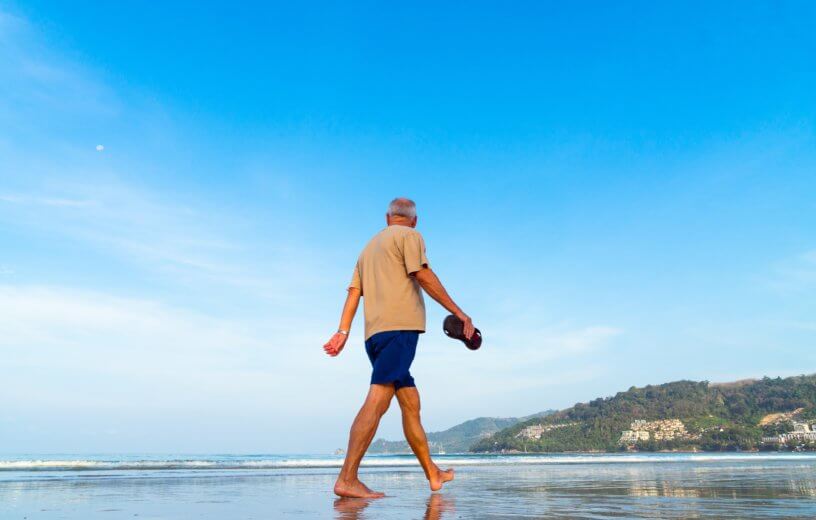SAN FRANCISCO — The secret to staying young in our older days may be as simple as heading outside for a daily walk and taking greater control of the outcome of our days, according to two new studies on “subjective age.”
Subjective age, of course, refers to the age we feel on a daily basis, despite how old we really are. For some, that number may be well past their actual age, leaving them quite envious of their peers who seemingly look and act quite younger. So what then are the major differences between people of the same age who feel the opposite of one another when it comes to subjective age? Researchers presented two theories during a presentation on the subject at the 2018 convention of the American Psychological Association.
Dr. Matthew Hughes, of the University of North Carolina (Greensboro), found that staying on one’s toes more frequently helps people feel younger. Hughes and his research team enlisted 59 adults ages 35 to 69 in Boston who did not work out regularly or engage in any other kind of daily physical activity. Participants were outfitted with FitBit fitness trackers and had their daily step counts recorded for five weeks. The authors found that individuals who increased their step counts over the course of the study period reported feeling younger than their subjective age at the beginning of the experiment.
“Our results suggest that promoting a more active lifestyle may result in a more youthful subjective age,” says Hughes in a media release.
That said, while the results may implore more individuals to head outside for a nightly stroll or head to the local gym for a new membership, Hughes admits the study involved a small number of participants and should be replicated with a more diverse group in a controlled setting.
In a separate study of 116 older adults and 106 young adults, another team of researchers showed how feeling more in control of your life can help you feel younger.
The study, conducted by scientists from North Carolina State University and Friedrich Schiller University in Germany, had participants complete a daily survey for nine days that polled them on their subjective age each day. They were also asked various questions that measured how much control they felt they had throughout the events of their day. For example, they’d rate the truth to the statement, “In the past 24 hours, I had quite a bit of influence on the degree to which I could be involved in activities.”
They found that subjective age tended to fluctuate for participants from each age group over the nine days, but participants from the older segment (ages 60 to 90) reported a notable air of youthfulness when they felt like they had more say in their daily activities. Interestingly, that finding didn’t hold true for the younger participants, who varied in age from 18 to 35.
“Our research suggests that subjective age changes on a daily basis and older adults feel significantly younger on days when they have a greater sense of control,” says co-author Dr. Jennifer Bellingtier.
That could mean assisted living center workers allow residents to have a larger say in their daily activities or even their meals so they feel like they’re still functioning adults. Similarly, family members monitoring their older loved ones could schedule their loved one’s days with them rather than for them.
“Shaping the daily environment in ways that allow older adults to exercise more control could be a helpful strategy for maintaining a youthful spirit and overall well-being,” says Bellingtier. “For example, some interventions could be formal, such as a regular meeting with a therapist to discuss ways to take control in situations where individuals can directly influence events, and how to respond to situations that they cannot control. Smartphone apps could be developed to deliver daily messages with suggestions for ways to enhance control that day and improve a person’s overall feeling of control.”
Of course, the key takeaway for both of these studies is that having a lower subjective age in our elder years can greatly improve a person’s overall well-being and life satisfaction. More physical activity and more control are ways for older people to refuel and still feel like there’s plenty of gas left in the tank.
The annual American Psychological Association convention took place August 9-12 in San Francisco.
